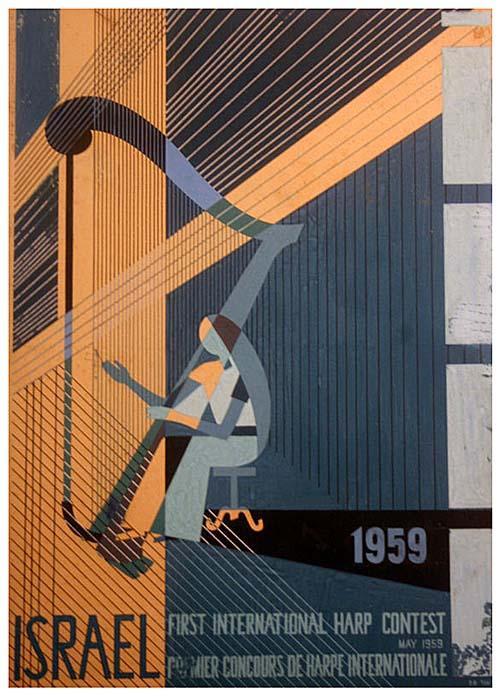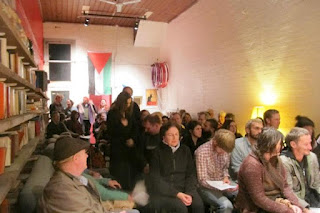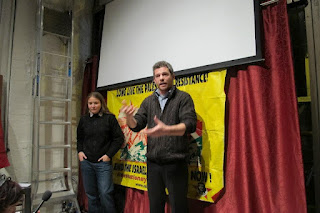Facts Uncovered: Amazing Revelations About Israel’s International Harp Contest
Why are harpists showing dwindling interest in travelling to Israel for the Harp Contest? The Contest website boasts that it looks ahead to the next 50 years, and invites harpists to join in the 18th contest from November to December, and lodge in the biblical city of Jaffa near Tel Aviv beaches.
Some interesting facts have come to light about the International Harp Contest in Israel. According to Carl Swanson, former student of the late master harpist Pierre Jamet, Israel was only supposed to be the location for the International Harp Contest in its inaugural year. Swanson wrote on a forum in the harpcolumn website:

Just to let you know: My teacher, Pierre Jamet, was the one who came up with the idea of an international harp competition and was part of the original organization that founded the Israel Competition. But their original plan was to hold the competition in a different country each time, not always in Israel. They chose Israel for the first competition because of the story of King David. But as soon as the first competition took place, the Israeli organizers took hold of it and kept it in Israel. [1]
This anomaly in planning the hosting of the event should lead to serious questions by international harpists regarding the contest continually being held in Israel. More facts have been uncovered which show how the Israeli government financially sponsors the contest [2], and there is strong evidence that the harp is being used as a propaganda tool to promote the Zionist state of Israel.
ORIGINAL INTENTIONS NOT HONORED
The contest is being seriously misused since the original founders intended the competition to live up to its title as an “International” Contest. No doubt Pierre Jamet was very disappointed that the contest he helped to found never took place in his home city of Paris. Jamet’s former student, Ruth Inglefield, tells how he “worked tirelessly to help create the beginnings of the large international family [3].”
How sad that his plans were never realized. Jamet passed away in 1991, always knowing that his intentions were not honored. Indeed, research shows that Jamet disassociated himself from Israel after 1965, just 6 years after the contest began in Israel.
There were other harpists who were also undoubtedly disappointed that Israel “took hold of the contest.” Maria Korchinska (England), Phia Berghout (Holland), Clelia Gatti Aldrovandi (Italy), Vera Dulova (Russia), Nicanor Zabaleta (Spain), Lucile Johnson Rosenbloom, Lucile Lawrence and Eileen Malone (USA), Marcel Grandjany and Carlos Salzedo (USA and France) were all renowned harpists and founders of the contest, they must have had visions of someday seeing the tri-annual contest in their home countries as well.

DWINDLING INTEREST
The Israeli Meitar Collection Website states that:
The Harp Competition – the first in the world – was founded in 1959 on a shoe-string by [sic] Aaron Zvi Propes. It takes place every three years and is considered the most [sic] important world harp contest contributing to Israel’s prestige.
Thirty-six entrants up to age 35 are accepted for every competition [4]
In 2003, the International Harp Contest, according to Israeli harpist Sunita Staneslow, had only eleven competitors. It fell far short of 36 contestants! Staneslow wrote on her website:
There were only eleven competitors this year due to the political situation in Israel, and I wondered if that would mean a loss of stature to the competition. [5]
This is not surprising, as the contest focuses primarily on placing the culture of the Israeli state on the International stage [6], and not on harpists, their talent and art. So desperate are the organizers for participants, that the 2012 contest now offers to pay half of all hotel and food costs for contestants.
Varvara Ivanova, Julie Bunzel, Albane Mahe and Etsuko Shoji were four of the eleven contestants present in 2003, and they all received a prize in Israel. Yet, how difficult would it be to place when the competition is so scanty? By contrast, The USA International Harp Competition had 39 contestants in a recent competition [7]. Of course, Staneslow is right, there is great loss of stature to Israel’s Harp Contest.
The real underlying reason for that loss of stature and prestige comes from the fact that Israel is committing the crime of apartheid against the Palestinian people. Recently, the UN Committee on the Elimination of Racial Discrimination emphasised:
The Committee’s concluding observations and recommendations are notable because they establish that Israel’s policies in the Occupied Palestinian Territory (OPT) are tantamount to Apartheid, and additionally determine that many state policies within Israel also violate the prohibition on Apartheid as enshrined in Article 3 of the Convention. [8]
HARPISTS PREFER CONTESTS IN EUROPE AND THE USA
In conclusion, efforts to revive the flailing contest in Israel are not likely to succeed, just as apartheid in Israel is not sustainable. Many harpists today do not even consider the Israel contest. They are looking to other contests such as the highly competitive and very popular USA International Harp Competition, the Lily Laskine in Paris[9], and the International Harp Competition of the Cité des Arts in Paris[10]. The Dutch Harp Competition is described as a “revolutionary international harp competition hosted in the Netherlands.[11]” The International Golden Harp Competition[12] was also recently inaugurated in Russia, and could likely replace the Israel Contest.
Harpists are likely investigating Israel’s many violations of human rights and are choosing to heed the call to boycott, reiterated by George Roger Waters of the legendary Pink Floyd:
This is, however, a plea to my colleagues in the music industry, and also to artists in other disciplines, to join this cultural boycott.
Artists were right to refuse to play in South Africa’s Sun City resort until apartheid fell and white people and black people enjoyed equal rights. And we are right to refuse to play in Israel until the day comes – and it surely will come – when the wall of occupation falls and Palestinians live alongside Israelis in the peace, freedom, justice and dignity that they all deserve.[13]
– George Roger Waters, The Guardian, UK, 11 March 2011
[1] http://www.harpcolumn.com/forum/message-view?message_id=19143167
[2] ”The Power Behind Israel’s Harp Contest” http://boycott-israel-harp-contest.posterous.com/the-power-behind-israels-harp-contest
[3] REMEMBRANCES OF PIERRE JAMET IN HIS CENTENNIAL YEAR By Marie Claire Jamet, Ruth Inglefield, and Carl Swanson http://swansonharp.com/articles/remembrances_pierre_jamet.html
[4] http://meitarfamily.co.il/206105?language=english
[5] http://www.sunitaharp.com/articles/TopHarpists.html
[6] Propes indeed placed Israel’s culture on the international stage. http://www.harpcontest-israel.org.il/about
[7] USA International Harp Competition concludes http://www.idsnews.com/news/story.aspx?id=76234&search=al§ion=search
[8] UN Committee 2012 Session Concludes Israeli System Tantamount to Apartheid http://www.jadaliyya.com/pages/index/5588/un-committee-2012-session-concludes-israeli-system?fb_action_ids=4127358194162&fb_action_types=og.recommends&fb_source=aggregation&fb_aggregation_id=246965925417366
[9] http://lilylaskine.online.fr/english/competition/competition.htm
[10] http://www.harpcompetition-citedesarts.com/
[11] Dutch Harp Competiton 2012 http://www.harpfestival.nl/competition
[12] http://www.goldenharp.ru/eng/main/?year=2011
[13]Tear Down This Israeli Wall http://www.guardian.co.uk/commentisfree/2011/mar/11/cultural-boycott-west-bank-wall

